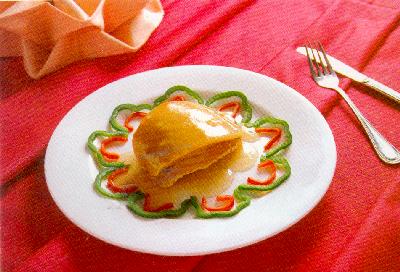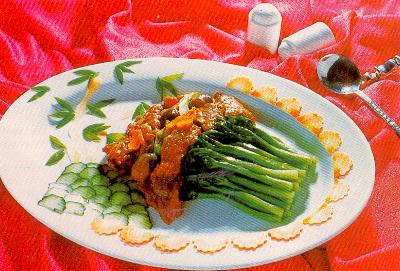| Chinese Way > Food & Drinks > Cuisines |
|
|
Guangdong Cuisine
As the climate of Guangdong is hot, Cantonese food does not use much spice, bringing out the natural flavor of the vegetables and meats. The dishes are fresh, crisp, tender, and lightly seasoned.
Guangdong cuisine has absorbed the cooking skills of the West as well as that of other Chinese regions, to develop its own unique methods. The basic cooking techniques include roasting, stir-frying, sauteing, deep-frying, braising, stewing and steaming. Steaming and stir-frying are most commonly used to preserve the ingredients' natural flavors. Guangdong chefs also pay much attention to the artistic presentation of their dishes.
The most famous snake dish in Guangdong is the dragon and tiger locked in battle, in which cobra, leopard cat, and over twenty spices are used. Roasted snake with chrysanthemum blooms is provided in autumn; the dish is creamy in color and garnished with beautiful petals of chrysanthemum, mushrooms, and various flavorings. Other delicacies in Guangdong cuisine are braised whole abalone with vegetable and delicious sauce, roasted suckling pig, duck web in oyster sauce, shark's fin with brown sauce, sauteed sliced beef with vegetable, fish belly in clear soup, fried shrimp, drunken shrimp (shrimp that are still alive, yet drowning in liquor), bird's nest with wax gourd, Dongjiang salted chicken and braised chicken feed with wild herbs.
In addition, Guangdong is also well known for its dim sum, snack-like delicacies of savory and sweet buns, steamed meat with vegetable and pastries. Dim sum is usually served for breakfast and lunch. |
||||||
All rights reserved. Reproduction of text for non-commercial purposes is permitted provided that both the source and author are acknowledged and a notifying email is sent to us. |
||||||
 |

